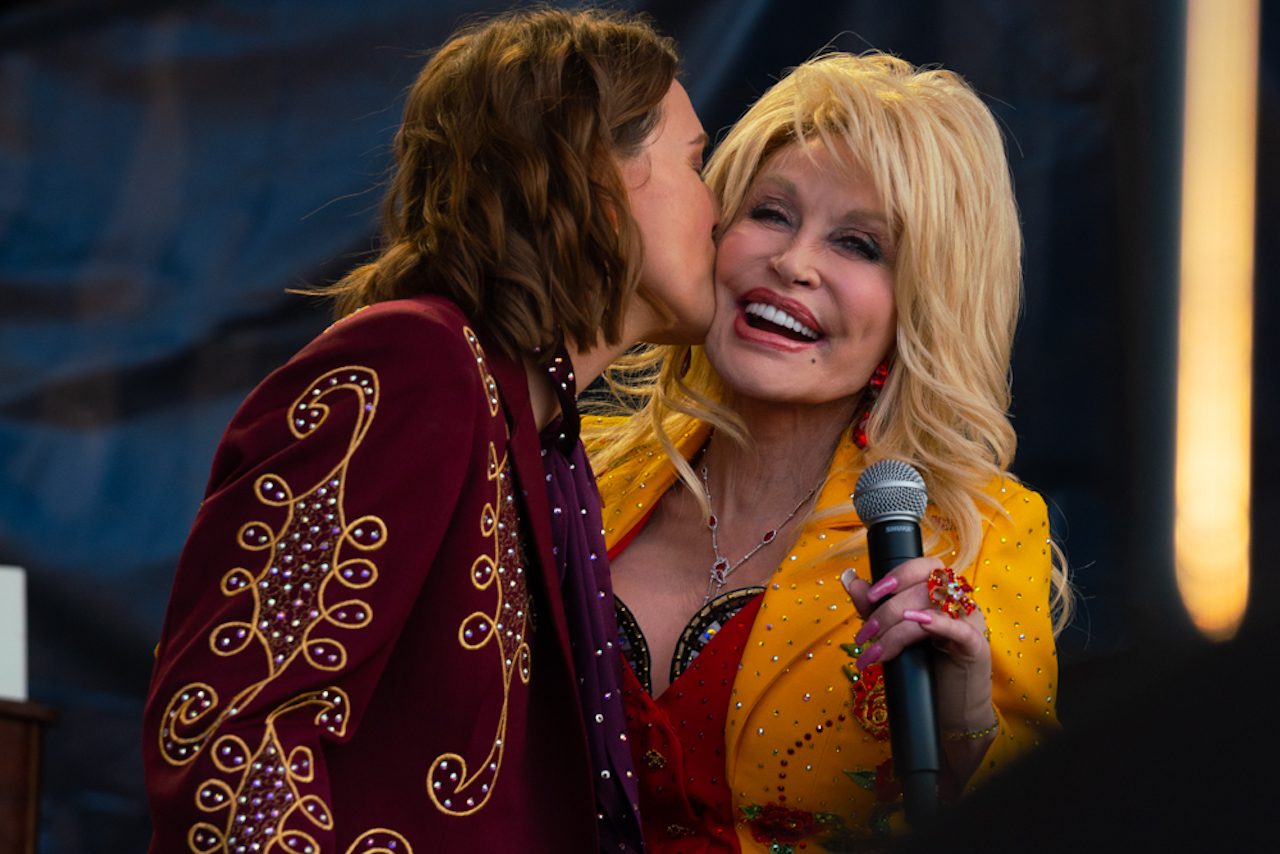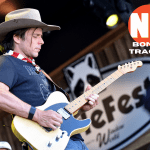BONUS TRACKS: Statue or No, We Will Always Love Dolly

Dolly Parton gets a kiss from Brandi Carlile at the 2019 Newport Folk Festival (photo by Anthony Mulcahy)
Dolly Parton, man. No matter how much bad is going on in the world, she always shines through with pure good. Her home state of Tennessee wanted to honor that with a plan to put up a statue of the singer at the state Capitol in Nashville, and rightly so. But now’s not the time, according to Dolly herself. In possibly the classiest “thanks but no thanks” ever executed, she put out a statement saying while she is “honored and humbled,” she has asked that the bill to make the statue a reality be rescinded. “Given all that is going on in the world, I don’t think putting me on a pedestal is appropriate at this time,” she explained. But she left the door open for a future tribute: “I hope, though, that somewhere down the road several years from now or perhaps after I’m gone if you still feel I deserve it, then I’m certain I will stand proud in our great State Capitol as a grateful Tennessean.”
Music lovers were delighted in December when the Save Our Stages Act, with $15 billion in relief targeted to arts venues, was included in Congress’ COVID-19 relief package. It didn’t happen overnight, and it didn’t happen without a lot of work from venue owners across the country, who came together to make sure lawmakers understood how vital their businesses are to local economies — and how little support they’d gotten nine months into a pandemic that rendered them unable to do business. Bloomberg CityLab has a fascinating look at how venues went from an every-stage-for-itself mindset to banding together to get a fighting chance at continuing to bring vibrancy (and entertainment dollars) to cities from coast to coast.
Within country music, long-overdue conversations are finally starting to happen to address equity and inclusion — whose voices are being heard and who has been shut out. CBS This Morning recently aired interviews with Vince Gill, Maren Morris, Rissi Palmer, and Ryan Hurd on the topic, and in a panel on “accountability and the future of country music” at the annual Country Radio Seminar, Luke Combs owned up to his past use of the Confederate flag in videos and on his guitar and said “I am now aware how painful that image can be,” using the moment not just for an apology or image rehab but rather to explain that he’s learning and trying to do better. You can read more on that frank and informative conversation via The Tennessean.
If you’re looking to learn more about roots music, check out this Google doc of recommended resources about black stringbands curated by Jake Blount. There’s good reading and good listening throughout the list, which he sets out not as an exhaustive catalog but a starting point.
The Americana Music Association is hosting a Music Lover’s Auction to benefit its nonprofit foundation, which supports educational programs related to roots music. The items up for bid include handwritten lyrics from American Aquarium, Allison Russell, Billy Strings, Buddy Miller, Josh Ritter, Old 97s, Milk Carton Kids, and more; professional photos of subjects including Dolly Parton, Jason Isbell, and Guy Clark; and other pieces of merch and memorabilia. Bidding is open until 9 p.m. ET on Feb. 23.
WHAT WE’RE LISTENING TO
Here’s a sampling of the songs, albums, bands, and sounds No Depression staffers have been into this week:
Arlo Parks – Collapsed in Sunbeams
Juliet Quick – “No Future”
Amythyst Kiah‘s new version of “Black Myself,” a song she originally contributed to the 2019 Songs of Our Native Daughters album:




